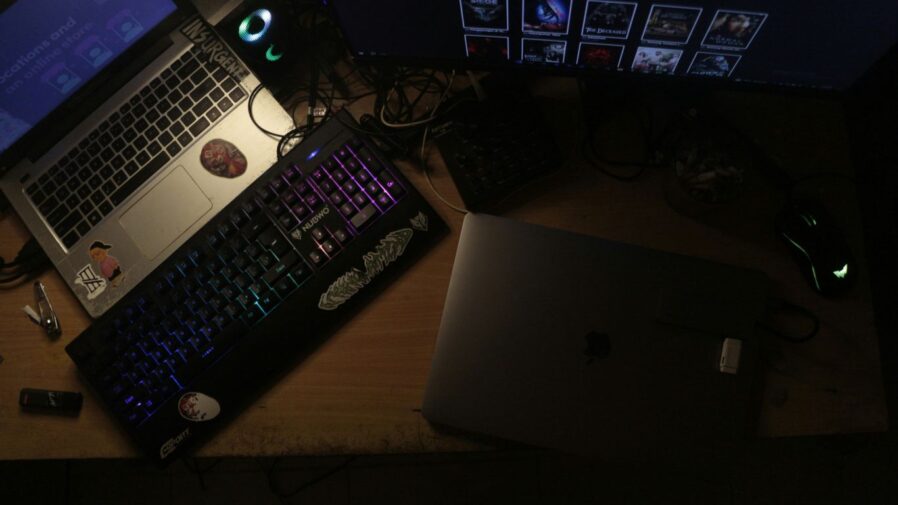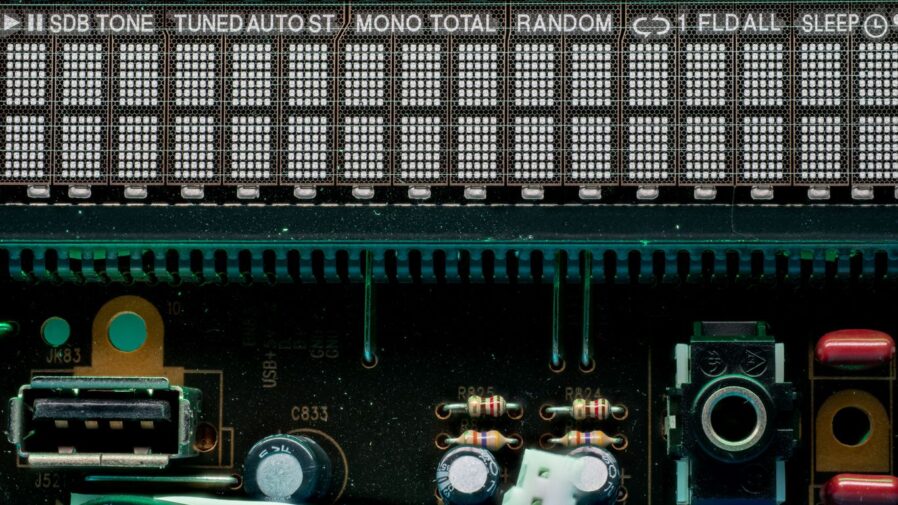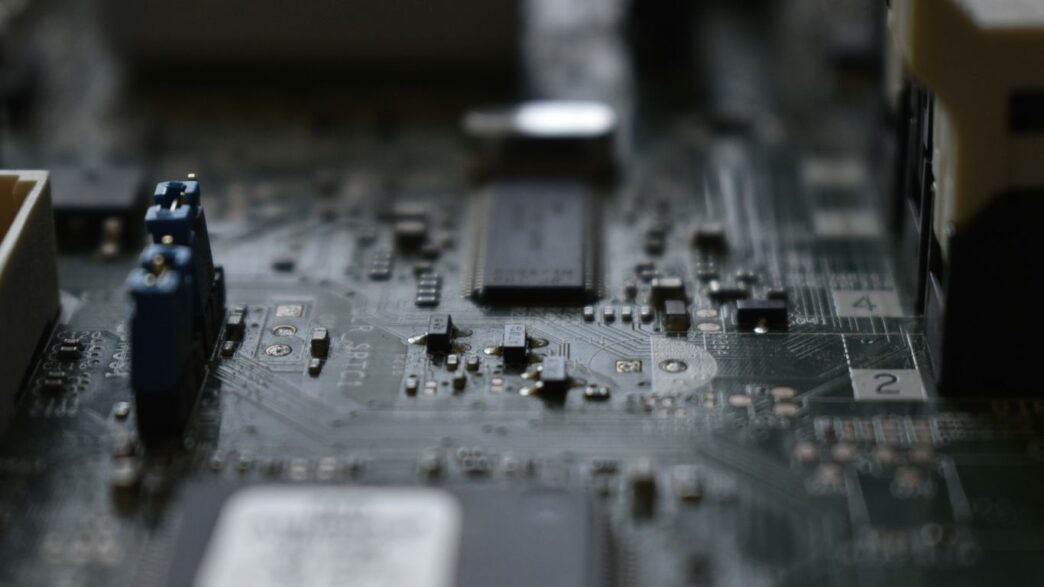Picking the best CPU for gaming in 2025 is a bit like shopping for shoes—there are tons of choices, and it’s easy to get overwhelmed. Whether you’re building a brand new rig or just upgrading your current setup, the right processor can make all the difference in how smooth your games run. In this guide, we’ll break down what actually matters, compare the top options from AMD and Intel, and help you match your CPU with the rest of your gear. Let’s keep it simple and find out what works best for your gaming needs.
Key Takeaways
- Both AMD and Intel have strong options for the best CPU for gaming—don’t stress about picking the ‘wrong’ brand.
- Look for CPUs with a good balance of clock speed and core count, especially if you plan to game and multitask.
- Make sure your CPU matches your motherboard and RAM, and always check compatibility before buying.
- High-end CPUs are great, but mid-range and budget chips can still deliver awesome gaming performance.
- Future-proofing matters—features like DDR5 and PCIe 5.0 support can keep your system running newer games longer.
Understanding What Makes the Best CPU for Gaming
Choosing a gaming CPU in 2025 feels a bit like picking your next favorite game—you’ve got lots of options, but the details matter. Knowing what actually boosts your frames per second and makes gameplay smoother is key. Here’s what you should consider when picking a processor for your gaming rig.
Core Count and Thread Performance
The core count in a CPU tells you how many independent tasks it can handle at once. Modern games use more cores than before, but not to the same extent as professional tasks. Threads help the CPU juggle jobs more smoothly, top for streaming while gaming or chatting in Discord during a match.
- For pure gaming, having 6–8 cores (12–16 threads) covers most needs in 2025
- Some open-world or strategy games use extra cores well, so 8+ is handy if you play these
- More cores benefit multitasking—think gaming, streaming, and voice chat at the same time
| CPU Cores | Typical Gaming Use |
|---|---|
| 4 | Entry-level, only eSports |
| 6 | Solid, most modern titles |
| 8+ | Gaming + multitasking/streaming |
Importance of Clock Speed
Clock speed (measured in GHz) is how quickly a CPU can do a task. Games are picky—they usually love high clock speeds, especially for smooth moves in first-person shooters. While flashy core counts look nice, a faster clock is still the main driver for higher frame rates in most popular games.
- Aim for 4.0 GHz base or higher in a new gaming CPU
- Look for good turbo/boost frequencies, as these matter in tight in-game moments
- Don’t chase the absolute highest number—real gaming difference comes from a mix of speed and design
The Role of Cache Size and Memory Support
Cache is basically your CPU’s short-term memory—it helps cut down game loading times and keeps your FPS from dipping during heavy scenes. Larger L3 caches boost gaming in titles that depend on fast access to lots of game data. For example, the Ryzen 7 9800X3D stands out for packing extra cache, making it shine with the latest GPUs.
- Bigger L3 cache helps avoid frame drops in data-hungry games
- Support for fast DDR5 memory gives you better frame rates and future upgrade options
- Make sure the CPU slot (socket) matches your motherboard, or you could end up shopping twice
The right mix of strong clock speed, adequate core/thread count, and cutting-edge cache with modern memory support makes all the difference. Focusing on these basics ensures you’re not just buying into hype, but real, steady performance for your games in 2025.
Comparing AMD and Intel Gaming CPUs in 2025
When you’re weighing which CPU is right for your next gaming build in 2025, you’re basically looking at AMD and Intel as your two biggest choices. Each has its own strengths, quirks, and, honestly, brand loyalties that are hard to ignore. Here’s what’s happening with both companies in the gaming space this year.
Strengths of AMD Ryzen X3D Series
- AMD’s Ryzen X3D chips, like the 9800X3D and 9950X3D, have become the go-to for pure gaming performance.
- Their standout feature is stacked 3D V-Cache, which gives a big leap in game frame rates, especially at 1080p and 1440p. Example: The Ryzen 7 9800X3D can be up to 35% faster in some titles than its Intel counterparts.
- These chips are now more balanced, not just for gaming, but also handling multitasking and even light content creation much better than before.
- Despite being a bit pricey—and sometimes hard to find—they’re usually seen as the chip to beat for anyone focused strictly on gaming.
- AMD has been pushing forward with memory technology and VR support, which helps with new gaming trends — just take a look at their advances in virtual reality hardware support.
Intel Core Advantages and Innovations
- Intel’s top chips, like the Core i9-14900K and the newer Ultra 9 285K, are still heavy hitters. They win out when it comes to tasks that use a lot of threads (think: streaming, video editing while gaming, etc.).
- Clock speeds are still high, making snappy performance in more than just games. Intel CPUs tend to be a little better in productivity apps.
- Intel has smart features like Adaptive Boost and improved integrated graphics on some variants, which helps budget-conscious builders who might skip a separate GPU.
- They are often more available on day one, so you can actually buy them without stalking retailers 24/7!
Quick Comparison Table — Flagship Chips
| Model | Cores/Threads | Max Boost (GHz) | Cache (MB) | Gaming FPS Lead (1080p) | Approx. Price |
|---|---|---|---|---|---|
| Ryzen 9 9950X3D | 16/32 | 5.7 | 192 | +20% vs Ultra 9 285K | $699 |
| Ryzen 7 9800X3D | 8/16 | 5.5 | 128 | +35% vs Ultra 9 285K | $480 |
| Core Ultra 9 285K | 24/32 | 6.2 | 36 (L3) | 0% (Baseline) | $599 |
(*Gaming FPS lead is approximate, varies by game and resolution)
Platform Compatibility and Upgrade Paths
- AMD has a pretty strong track record with upgrade paths. Their AM5 socket is expected to last a few more generations—so upgrading later can be cheaper because you might not need a whole new motherboard.
- Intel typically updates sockets more often, so you might have to replace more parts when you want the latest chip. That said, you do get cutting-edge features sooner, like the latest DDR5 support and PCIe revisions almost every time.
- Both platforms offer strong DDR5 memory and PCIe 5.0 support, but check exact specs based on your motherboard and CPU pick, because not all combos will give you every feature out of the box.
In short, AMD is winning the pure gaming race with its X3D chips right now, but Intel still has a solid hold on versatility and future technologies. Deciding between them really comes down to what games you play, what else you do on your PC, and how often you plan to upgrade.
Top Best CPUs for Gaming by Category

When it comes to picking out the right CPU for your gaming setup in 2025, one size definitely doesn’t fit all. You’ve got options for all types of needs and budgets. Whether you want something top-tier for serious frame rates or just need reliable power for everyday play, here’s a breakdown of the best CPUs by category.
Best High-End CPUs for Gaming Enthusiasts
If you love maxing out settings and pushing 4K graphics—or maybe you stream and multitask while gaming—a high-end processor is worth considering.
The best high-end CPUs blend speed, multiple cores, and big cache sizes to handle heavy gaming and multitasking.
Here’s a quick table for comparison:
| CPU Model | Cores/Threads | Base Clock | Max Turbo | Cache | Best For |
|---|---|---|---|---|---|
| AMD Ryzen 9 9950X3D | 16/32 | 4.3GHz | 5.7GHz | 128 MB | 4K/competitive gaming |
| Intel Core i9-14900K | 24/32 | 3.2GHz | 6.0GHz | 36 MB | High FPS, streaming |
Main reasons to go high-end:
- Best frame rates for AAA titles
- Future-proof for new games and features
- Handles background apps, including recording or streaming
Best Mid-Range Gaming Processors
Not everyone needs the top dog. The latest mid-range CPUs are surprisingly close to their pricier siblings for less cash.
Top contenders here:
- AMD Ryzen 7 9800X3D
- Intel Core i7-14700K
- AMD Ryzen 5 9600X
What makes these stand out?
- Offer high frame rates at 1080p or 1440p,
- Balanced for budget and performance,
- Great for current and upcoming titles in 2025,
- Usually more energy efficient and run cooler.
Lots of gamers today are going with chips like the Ryzen 5 9600X, which usually land right in that "sweet spot" of price and power, sort of like how gaming laptops evolved in 2016 to mix performance with affordability.
Budget-Friendly Gaming CPUs
If your top goal is to play games smoothly without blowing your wallet, these are your best bets. Budget processors have gotten mighty good at keeping up, especially with smart pairing and modest settings.
Solid budget options as of September 2025:
| CPU Model | Cores/Threads | Base Clock | Max Turbo | Notes |
|---|---|---|---|---|
| Intel Core i5-12400 | 6/12 | 2.5GHz | 4.4GHz | Very affordable |
| AMD Ryzen 5 5600 | 6/12 | 3.5GHz | 4.4GHz | AM4 platform |
| AMD Ryzen 5 8600G | 6/12 | 4.3GHz | 5.0GHz | Built-in graphics |
Key points to remember:
- Stick to games that are less CPU demanding for best results,
- Pair with a solid GPU for balanced performance,
- Older platforms sometimes offer even better value if you’re okay with used parts.
Choosing a great CPU for gaming in 2025 really boils down to your needs and what you want out of your system. Whether you’re building a powerhouse, upgrading an old favorite, or setting up your first rig, there’s a solid option for every category now.
How to Match Your CPU With Other PC Components

A shiny new CPU is just one piece of the puzzle. Connect it with the right gear, and you’ll get a smooth gaming experience. Pair it wrong, and you might end up hunting weird stutters or getting less-than-expected performance. Here’s how to bring all the hardware together, one piece at a time.
Pairing the CPU With the Right GPU
Avoid pairing a top-tier CPU with an entry-level graphics card (or vice versa), or you’ll hit a performance wall. To keep things balanced:
- Match high-end CPUs like the Ryzen 7 9800X3D or Core i9-14900K with strong GPUs like the RTX 5090 if you want to play at 4K or on high-refresh monitors.
- For 1080p gaming, a mid-range CPU and GPU combo works well — something like a Ryzen 7 9700X matched with an RTX 4060, for example.
- Entry-level CPUs should stick with budget-friendly graphics cards so neither holds the other back.
Here’s a quick table to show common pairings:
| CPU Tier | Example CPU | Suggested GPU Level |
|---|---|---|
| High-End | Ryzen 9 9900X3D | RTX 5090, RX 8900 XT |
| Mid-Range | Core i5-14600K | RTX 4070, RX 7800 XT |
| Budget | Ryzen 5 5600 | RTX 3050, RX 6600 |
Some budget build guides offer more combinations tailored to your needs.
Motherboard and RAM Compatibility
You need to make sure your CPU matches your motherboard’s socket. For example, AMD’s new chips use AM5, while Intel’s latest work with LGA 1700. Pick RAM that’s compatible, too:
- If your CPU supports DDR5, don’t bother with older DDR4 modules — you won’t get the best speeds.
- Look up the motherboard’s QVL list (Qualified Vendor List) to check which RAM is tested and approved.
- Double-check the max RAM speed your motherboard and CPU combo support.
Quick checklist:
- Confirm CPU socket and chipset
- Pick RAM: type (DDR4/DDR5), speed, and capacity
- Make sure BIOS supports your CPU, especially if it’s just released
Cooling and Power Recommendations
CPUs that run fast usually run hot. If you’re going for performance, especially with chips designed for overclocking, cooling can’t be an afterthought:
- Invest in a quality air or liquid cooler if you’re using anything above entry-level.
- Check the CPU’s TDP (how much heat it gives off), and buy a power supply unit (PSU) that supports both your CPU and GPU power draw. Err on the side of a bit more wattage.
- Clean case airflow helps keep temps in check. Don’t block fans with cables.
A few tips:
- Don’t cheap out on the PSU; bad power leads to weird crashes.
- Pre-applied thermal paste is often enough, but consider re-pasting if temps creep up.
- More demanding CPUs might need custom cooling, especially if your room stays warm.
Getting your parts to play nice is half the work, but it’s worth it for a rig that feels snappy and stable.
Overclocking and Optimization for Maximum Gaming Performance
If you like squeezing every bit of extra speed out of your gaming PC, overclocking is probably on your radar. Overclocking basically means pushing your CPU past its standard settings for better in-game performance. Done right, it can give you noticeable frame rate gains—but do it wrong, and you risk system crashes, or worse, fried parts. Before you start, make sure you’re comfortable with the risks. Luckily, there are plenty of detailed overclocking guides that can walk you through the basics and help keep you safe.
Safe Overclocking Tips for Gamers
Don’t go in blind. Here’s a simple checklist:
- Double-check that your motherboard and CPU both support overclocking. Not every chip or board is made for it.
- Always update your motherboard’s BIOS to the latest version before you tweak anything.
- Start with small adjustments to your CPU’s multiplier and voltage. It’s tempting to go big, but slow and steady is the way to go.
Monitoring and Managing Temperatures
Heat is the enemy when you’re running your CPU above spec. You’ll need good airflow and a capable cooler—don’t count on stock solutions.
- Install monitoring software like HWiNFO, HWMonitor, or your motherboard’s own utility.
- Keep an eye on your CPU’s temps while gaming or stress-testing; most chips are happiest under 85°C.
- If you see anything higher, dial back your overclock or bump up your cooling game.
| Cooling Solution | Typical Temp Range (Gaming) |
|---|---|
| Stock Cooler | 80–90°C |
| Mid-range Air Cooler | 70–80°C |
| High-end Air or AIO | 60–75°C |
BIOS and Firmware Tweaks
The BIOS is where the magic happens—and where a lot of folks mess up. Here’s how to keep it simple:
- Only change one setting at a time. If your system crashes, it’s easier to figure out what went wrong.
- Enable XMP or EXPO profiles for faster RAM speeds.
- Don’t forget to save your BIOS profile once you land on something stable.
So, if you’re looking to get a bit more performance out of your gaming CPU, start slow, monitor everything, and don’t take shortcuts. Sometimes, those last few MHz just aren’t worth the hassle.
Key Features to Future-Proof Your Gaming System
It’s always a hassle when your new gaming rig feels outdated a year after you built it. Fortunately, you can avoid that regret by making smart choices with the following features.
DDR5 and PCIe 5.0 Support
Upgrading to DDR5 memory and PCIe 5.0 now means your PC won’t be left behind by future games and hardware. DDR5 RAM offers faster speeds and better efficiency compared to DDR4, while PCIe 5.0 doubles the bandwidth of the previous PCIe generation, opening doors for upcoming graphics cards and super-fast SSDs.
| DDR4 | DDR5 | |
|---|---|---|
| Launch Year | 2014 | 2021 |
| Max Speed (MT/s) | 3200 | 6800+ |
| Voltage | 1.2V | 1.1V |
PCIe Comparison:
- PCIe 4.0 x16 bandwidth: 32 GB/s
- PCIe 5.0 x16 bandwidth: 64 GB/s
With these standards, you’ll be set up for higher-quality visuals and faster load times as newer games and hardware come out.
Socket Longevity and Upgradeability
When you’re picking a CPU, don’t forget to think about the socket and chipset. New sockets often mean a clean slate for upgrades, while sticking with a platform that supports multiple CPU generations saves you money and headaches.
Shortlist for socket upgradability:
- Choose a platform with at least 2-3 planned future CPU generations.
- Make sure the latest memory and storage tech is supported.
- Check manufacturer roadmaps for planned chipset compatibility.
This means you can just swap your processor for a newer one in a couple of years, without having to rip apart your whole system.
Considerations for Streaming and Content Creation
Gaming is just part of the story—many people use their PCs for streaming, video editing, or even running two screens. For that, you’ll want features that go beyond gaming power:
- Look for CPUs with more cores and threads (helps with multitasking).
- Pick models with hardware encoders/decoders for video (think: smooth streams and fast video rendering).
- Choose enough RAM (32 GB is pretty much the baseline if you mix gaming and heavy apps).
A future-ready gaming CPU will be just as solid for your next streaming project or creative workload as it is for your favorite games.
So, when you’re planning your next upgrade, take these future-proofing points to heart. Your wallet—and your frame rates—will thank you for it.
Wrapping Up: Picking the Right Gaming CPU in 2025
Choosing a CPU for gaming in 2025 can feel a bit overwhelming, but it really comes down to what you want out of your PC and how much you’re willing to spend. Both AMD and Intel have solid options, so you can’t really go wrong with either. Think about what games you play, if you plan to stream or multitask, and whether you want to upgrade your system down the line. Don’t forget to match your CPU with a decent GPU, enough RAM, and good storage—otherwise, you won’t get the most out of your new processor. Prices and models change all the time, so it’s smart to check for deals and read up on the latest reviews before you buy. At the end of the day, the best CPU is the one that fits your needs and your budget. Happy gaming!
Frequently Asked Questions
What does a CPU do in a gaming computer?
The CPU, or central processing unit, is like the brain of your computer. It handles all the instructions from your games, such as controlling characters, running the game’s world, and managing background tasks. A strong CPU helps games run smoother and faster.
Is it better to have more cores or higher clock speed for gaming?
For most games, having a higher clock speed is more important because it helps your computer do single tasks faster. More cores are helpful if you like to multitask, stream, or play games that use many cores, but for just gaming, clock speed usually matters more.
Should I choose AMD or Intel for gaming in 2025?
Both AMD and Intel make great gaming CPUs in 2025. AMD’s Ryzen X3D chips are excellent for pure gaming, while Intel’s latest Core processors are great for gaming and other tasks. Pick the one that fits your budget and works with your other PC parts.
How do I know if my CPU will work with my motherboard and RAM?
Check the CPU socket type and make sure it matches your motherboard. Also, look at the kind of RAM your CPU and motherboard support, like DDR4 or DDR5. Reading the product details or asking for help can make sure everything fits together.
Do I need to overclock my CPU for better gaming performance?
Overclocking can make your CPU run faster, but it’s not always needed. Many modern CPUs are already fast enough for gaming. Overclocking can also make your computer hotter and use more power, so only try it if you know how and have good cooling.
How can I make sure my gaming PC is ready for the future?
To future-proof your PC, choose a CPU that supports new features like DDR5 memory and PCIe 5.0. Also, pick a motherboard that will let you upgrade later. This way, your computer can handle new games and parts for years to come.














